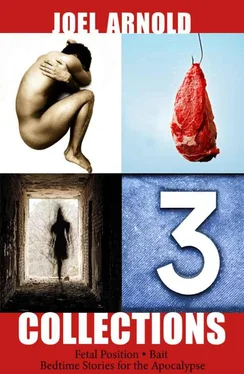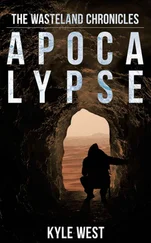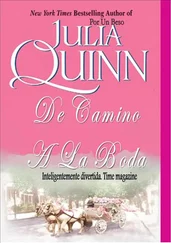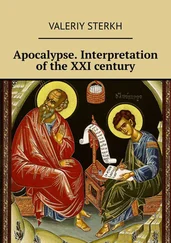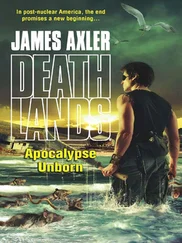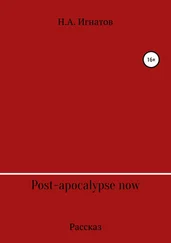Joel Arnold
FETAL BAIT APOCALYPSE
3 Collections in 1
The Kindness of Strangers
At dusk the cabin looks like a brooding face, the way the sun throws deep wrinkles across its knotted and gnarled logs. Two front windows stare lifelessly out at the surrounding forest and the door is like a blockade across an ancient mouth, keeping its secrets from spilling out and poisoning the weeds outside the threshold. At its base, dark gray rocks creep up like dead, swollen fingertips. No one has lived here for a long time.
Gary Nelson kneels with his back against a nearby oak. Tears trail down his cheeks. His eyelids resemble fat, bloated leeches. He places the barrel of a 12-gauge shotgun against the roof of his mouth.
“Barbara,” he says around the barrel.
His tongue flicks against the rusted metal. He gags. He is thirty-eight years old. Barbara left him three months earlier for an insurance salesman. Nelson caught them on the living room couch. As if they wanted to be caught. As if they got off on being caught.
He shakes the memory away. He’s got nothing left to live for. No family. No home. He shuts his eyes and pulls the trigger.
There is a dry click but nothing else. He opens his eyes wearily and removes the shotgun from his mouth, spits the taste of metal on the forest floor, and wipes the tears and sweat from his eyes. His breath is shallow and noisy as he checks the breech. A cartridge winks at him in the dying sunlight. Nelson calms down and sets the butt of the gun back on the ground, placing his finger upon the trigger. Once again he positions his head over the barrel. Closes his eyes.
That’s when he first hears the whispers.
His eyes pop open in surprise. He moves the gun away from his face and quickly stands. This is supposed to be a private act.
“Who’s there?” He can’t see anybody, but there are plenty of places to hide. “Who’s there, goddamn it?”
No one answers. Yet now he can see something in the short distance. A shape through the dark, twisted trees. The shape of a cabin fading quickly with the sunlight. Funny how he hadn’t notice it before.
He feels the shotgun heavy in his hands, but before his thoughts turn back to the task at hand, he hears the whispers a second time. He is unable to distinguish any words, barely able to discern it from the howl of wind through the trees.
“Who’s there?” he calls again. A wisp of smoke creeps up from a black pipe in the roof of the cabin. He steps toward it.
Inside, a single log smolders in a black wood-burning stove. A worn mattress lies in the corner hidden beneath a tattered Army-issue blanket. There is a weathered pine table. Some empty cabinets above a rusting countertop. A round disc of sawed off oak, five inches thick and two feet across, still ringed with rough bark and cured with blood, sits heavy on the counter; a crude butcher’s block. Next to it is a hatchet, its blade nicked, its handle splintered and dark with grease.
Nelson sees a five-gallon pail full of thick red water on the floor next to the wood stove. He sets down his gun and peers in. A severed hand floats to the top. He wants to vomit, wants to get back to the simplicity of placing shotgun in mouth and pulling the trigger, but again he hears the whispers. They come at him from all directions.
“ Welcome,” they say, a hundred voices united in a child-like chorus, tickling his brain. “Welcome.”
The door to the cabin shuts quietly behind him and he hears footsteps, slow and heavy and dragging. Rough callused fingers squeeze his shoulder. The floor comes up to meet him, but he doesn’t feel a thing.
He dreams of the shotgun. Dreams of the barrel in his mouth. It tastes like black licorice. The shell perspires in the chamber. It looks alive, like flesh. He pulls the trigger. Instead of an explosion, he hears loud, throaty laughter as the bullet rips through the roof of his mouth and into his skull. Instead of the instant gratification of death, the bullet eats slowly away at his brain.
He wakes. It is night. An old Indian squats at the foot of the mattress on which Nelson lays, silhouetted darkly against the crimson glow of the wood-burning stove.
“You got piss poor dreams,” the Indian says.
“Who are you?” Nelson’s head feels light and he has trouble focusing. “Are you some kind of medicine man?”
The old Indian answers with a soft, wheezing chuckle. “Hell no,” he says. He gets up and saunters over to the wood stove. “Name’s Hump.”
Hump is bare-chested, his skin dark and wrinkled like beef jerky, full of pale welts and scratch marks. He wears a stark white ponytail that reaches down to the belt loops of his jeans. On his cowboy boots are tooled a pair of intricately detailed eagles hidden behind a thick layer of dried mud and grease. His eyes are sewn shut with thin strips of deer hide.
Hump holds something in his hand. Nelson’s shotgun shells. He throws them one at a time into the belly of the stove where they explode, sending a spray of ash onto Hump’s cancerous grin.
He turns to Nelson. Despite the missing eyes, Nelson feels as if the old man is seeing him, seeing deep inside of him. He feels a chill settle in him from the inside out.
“You can hear ’em, huh?” Hump says.
“Hear what?” Nelson asks.
“The children. Singing in your head.”
Nelson doesn’t answer. He looks away.
“I know you hear ’em.” Hump laughs. “Lucky for you, or else I’d have to kill you.”
Nelson thinks briefly it’s a joke, but then remembers the hand he saw floating in the pail by the stove.
“But hey, you wanna die anyway, no?” Hump says.
Nelson isn’t sure how to answer. By his own hands, yes. In his own way. But to have it done at the mercy of some stranger? He glances at the bloodstained butcher’s block. That’s not the way to do it, he thinks. That’s not the way to die.
“I want to be alone,” he finally says.
Hump gestures toward the butcher block. “Hey, don’t worry about that shit. That ain’t nothing.” He stands. “I got something that’ll make you forget about your troubles. Make you wanna be alive.”
Alive? What for?
Nelson remembers the look on Barbara’s face. No sorrow. No regret. Merely smugness. Then a slow, creeping smile followed by laughter.
“I want to go now,” Nelson says.
Hump laughs. He walks over to a small oval rug on the floor and pulls it back. There is a knot of rope beneath it, which he lifts, opening a small trap door cut out of the floorboards. Darkness rises out from the hole in a thick, miasmic mist.
“You can’t go now,” Hump says. “Once you hear ’em calling you, you can’t never go.”
A foul odor rises, too, like fish rotting in the sun. Nelson’s stomach lurches and threatens to spill its contents on the floor.
“Aw, hey,” Hump says. “Don’t worry none about that. You get used to that in a hurry. You get to like it, even.” He slowly descends the set of stone steps that the trap door reveals. The darkness devours him.
Nelson looks at the door of the cabin, the door that leads outside. He sees his shotgun sitting there, but remembers the shells Hump threw into the stove. All he would have to do is stand and run. Run back into the forest. Perhaps take the hatchet with him and hack a couple jagged lines in his wrist, hold it under the flowing waters of the nearby river and wait for the black nothingness to overtake him.
But again he hears the whispers.
“ Come,” they say, a thousand voices all whispering at once.
Nelson tingles all over.
“ Come.”
He can’t resist. He follows Hump into the darkness beneath the cabin.
Читать дальше
